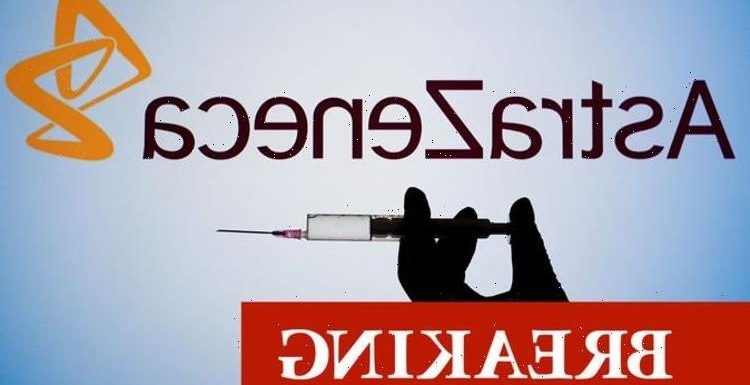
Pfizer and AstraZeneca vaccines approved for booster scheme
We use your sign-up to provide content in ways you’ve consented to and to improve our understanding of you. This may include adverts from us and 3rd parties based on our understanding. You can unsubscribe at any time. More info
The pharmaceutical giant is backing RNA-based technology platforms in the wake of the stellar success of mRNA vaccines for COVID-19.
It has made an undisclosed investment in VaxEquity, reported to be as much as £142million.
The company is a spinout from Imperial College London set up last year, whose own RNA-based COVID-19 vaccine was an early contender during the pandemic.
But it fell behind other mRNA rivals such as BioNTech and Moderna and so focused its efforts elsewhere.
Imperial’s candidate was the first saRNA drug to be advanced into human clinical testing, though.
Developed by Professor Robin Shattock and his colleagues, the groundbreaking technology’s success lies in its potential to achieve a strong immune response using a lower dose of antigen than mRNA shots.
AstraZeneca’s vaccine has played a massive part in the fight against COVID-19, but its make-up – based on based on adenoviral technology – has been overlooked by mRNA shots.

The company sees its deal with VaxEquity as going well beyond COVID-19, extending into other vaccines as well as therapeutic drugs.
AstraZeneca’s head of R&D, Mene Pangalos, said: “We believe self-amplifying RNA, once optimised, will allow us to target novel pathways not amenable to traditional drug discovery across our therapy areas of interest.”
VaxEquity was founded last year by Prof Shattock to probe the potential of sARNA technology for vaccines.
It works in a similar way to mRNA, but such vaccines have advantages that mean doses can be smaller and therefore cheaper to produce.
Prof Shattock said: “It’s a bit like having a manufacturing facility and, instead of having one copy of the recipe, you have multiple copies that you can hand round to multiple production lines within the cell to produce more protein.
“That’s why it has that opportunity to use lower doses.”
Other drugmakers such as GlaxoSmithKline and Sanofi are racing to back RNA technology after the rapid development of Covid vaccines using messenger RNA (mRNA) by Pfizer- BioNTech and Moderna.
Imperial’s vaccine is now being reconfigured to produce a more consistent immune response with an eye on future coronavirus variants.
Astra has the option to collaborate with VaxEquity on 26 target drugs, which potentially could be deployed in therapeutic areas such as cancers and rare genetic diseases.
Prof Shattock said that safety data had been encouraging from initial trials of its COVID-19 vaccine, released in July ahead of peer review, and that phase one results of its refined vaccine would be ready early next year.
He added: “The reason we were slower was because we were coming from an academic setting.
“If we had this relationship [with Astra] at the beginning of 2020, we might have been faster.”
Source: Read Full Article